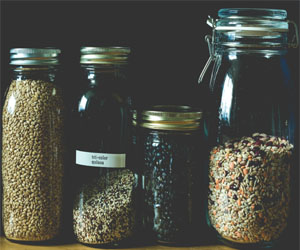

A Journey To Joyful Living

In the pursuit of happiness, we often search for it in external circumstances, achievements, or material possessions. However, true happiness often lies within us, waiting to be unlocked by the simple yet profound practice of gratitude. By finding happiness through gratitude, we can experience a deeper sense of contentment and fulfillment in our lives.
Gratitude is the art of recognizing and appreciating the positive aspects of life, no matter how small or seemingly insignificant. It is the act of acknowledging the good in our lives and focusing on our blessings rather than dwelling on what we lack. Here's how finding happiness through gratitude can lead to a more joyful and fulfilling life:
Shifting Perspective: Gratitude encourages a shift in perspective from a "glass-half-empty" outlook to a "glass-half-full" mindset. By consciously looking for and appreciating the positive aspects of life, we train our minds to focus on what's good, thereby increasing our overall happiness.
Reducing Stress And Anxiety: Gratitude has a profound impact on our stress levels and emotional well-being. When we practice gratitude, it activates the brain's reward system, releasing feel-good neurotransmitters like dopamine and serotonin. These chemicals counteract the effects of stress hormones, leading to reduced anxiety and increased relaxation.
Enhancing Emotional Well-Being: Regularly practicing gratitude is associated with higher levels of happiness, contentment, and life satisfaction. It promotes a more positive emotional atmosphere, allowing us to experience joy even in the midst of life's challenges.
Fostering Resilience: Gratitude is a powerful tool for building emotional resilience. When we can find reasons to be thankful, even in difficult situations, we develop the ability to bounce back from adversity and maintain a positive outlook on life.
Strengthening Relationships: Expressing gratitude in our interactions with others fosters deeper connections. It not only makes people feel appreciated but also creates a supportive and empathetic environment that is vital for maintaining and nurturing relationships.
Promoting Mindfulness: Finding happiness through gratitude encourages mindfulness. It prompts us to be present in the moment, to savor the beauty in our surroundings, and to cultivate an attitude of appreciation.
To incorporate gratitude into your daily life and find happiness, you can start by keeping a gratitude journal. Each day, take a few minutes to write down things you are thankful for. They can range from significant life events to the simple pleasures of daily existence. The key is to make this practice a part of your daily routine, and as you do, you'll start to notice the transformative power of gratitude.
Finding happiness through gratitude is a journey to joyful living. By shifting your perspective, reducing stress, enhancing emotional well-being, fostering resilience, strengthening relationships, and promoting mindfulness, gratitude becomes a powerful force that can enrich your life and bring lasting happiness. In a world full of challenges and distractions, the practice of gratitude can be a guiding light that leads you to a more joyful, content, and fulfilling existence.
Nourishing Your Body And Mind
 Avocado: Creamy and rich in monounsaturated fats, avocados are not only a delightful addition to your meals but also an excellent source of stress-fighting nutrients. They contain B vitamins and potassium, which help lower blood pressure and reduce stress.
Avocado: Creamy and rich in monounsaturated fats, avocados are not only a delightful addition to your meals but also an excellent source of stress-fighting nutrients. They contain B vitamins and potassium, which help lower blood pressure and reduce stress.
Berries: Blueberries, strawberries, and other berries are chock-full of antioxidants that combat oxidative stress. These antioxidants can help protect your body's cells from the damage caused by chronic stress.
Dark Chocolate: Dark chocolate in moderation can be a comforting treat and is known to trigger the release of endorphins, the body's natural stress relievers. It also contains flavonoids, which have been linked to lower stress levels.
Fatty Fish: Salmon, mackerel, and trout are high in omega-3 fatty acids, which have been shown to reduce stress and anxiety. These healthy fats are essential for brain health and mood regulation.
Leafy Greens: Greens like spinach and kale are rich in magnesium, a mineral that can help regulate cortisol, a hormone associated with stress. Consuming more magnesium can have a calming effect on the body.
Nuts: Almonds, walnuts, and pistachios are packed with nutrients, including B vitamins and healthy fats, which are known to reduce stress and support overall mental well-being.
Turmeric: The active compound in turmeric, curcumin, has anti-inflammatory and antioxidant properties. These qualities can help combat stress and reduce the risk of depression.
A Blueprint For Thriving In Adversity
 Resilience is not an innate trait; it is a set of skills that can be developed over time. At its core, resilience involves a combination of mental and emotional processes that enable individuals to cope with stress, adapt to change, and navigate difficult situations with grace. Here are some key aspects of resilience:
Resilience is not an innate trait; it is a set of skills that can be developed over time. At its core, resilience involves a combination of mental and emotional processes that enable individuals to cope with stress, adapt to change, and navigate difficult situations with grace. Here are some key aspects of resilience:
Emotional Regulation: Resilient individuals can manage their emotions effectively. They understand their feelings and have the tools to handle them in a healthy way.
Adaptability: Resilience is closely linked to adaptability. Those who are resilient are more open to change and can adjust their plans and strategies as needed.
Problem-Solving: Resilient individuals approach challenges with a solution-oriented mindset. They seek opportunities for growth and learning in difficult situations.
Optimism: Resilience is associated with a positive outlook. Resilient people can find the silver lining in adversity and maintain hope for the future.
Building Resilience Skills
Develop Emotional Intelligence: Start by enhancing your emotional intelligence. This involves recognizing, understanding, and managing your own emotions and being attuned to the emotions of others. Emotional intelligence provides a strong foundation for resilience.
Cultivate Self-Awareness: Know yourself and your reactions to stress and adversity. Self-awareness allows you to identify your triggers and vulnerabilities, enabling you to respond more effectively to difficult situations.
Build A Support System: Surround yourself with a support system of friends, family, or a therapist. Social support is a crucial element in resilience, as it provides a safety net during tough times.
Nurturing Mind And Emotions
 The Modern Mental Health Landscape
The Modern Mental Health Landscape
Mental health issues such as anxiety, depression, and stress are increasingly prevalent in our fast-paced and often stressful modern lives. While conventional treatments like psychotherapy and prescription medications remain vital, many individuals seek complementary approaches to manage their mental well-being. Herbal remedies offer a gentler and more natural alternative.
Herbal Remedies For Mental Health
Several herbs have gained popularity for their potential to support mental health. Here are a few notable examples:
St. John's Wort (Hypericum Perforatum): St. John's Wort is renowned for its antidepressant properties and is commonly used to alleviate symptoms of mild to moderate depression.
Lavender (Lavandula Angustifolia): Lavender's soothing aroma is celebrated for its calming effects, reducing anxiety and improving sleep quality.
Ashwagandha (Withania Somnifera): An adaptogenic herb, Ashwagandha can help the body adapt to stress, improve resilience, and promote emotional balance.
Passionflower (Passiflora Incarnata): Passionflower is used to reduce anxiety and insomnia, promoting relaxation and emotional well-being.
Valerian (Valeriana Officinalis): Valerian root is a natural sedative, often used to relieve anxiety and improve sleep quality.
Chamomile (Matricaria Chamomilla): Chamomile is known for its calming properties and is frequently used to reduce stress and anxiety.
A Journey To Better Health And Taste
 2. Fresh Fruits And Vegetables: At the heart of any diet based on wholesome ingredients are fresh fruits and vegetables. These colorful and nutrient-dense foods provide a wide array of vitamins and minerals, along with dietary fiber. Incorporating a variety of fruits and vegetables into your meals ensures you get a broad spectrum of nutrients.
2. Fresh Fruits And Vegetables: At the heart of any diet based on wholesome ingredients are fresh fruits and vegetables. These colorful and nutrient-dense foods provide a wide array of vitamins and minerals, along with dietary fiber. Incorporating a variety of fruits and vegetables into your meals ensures you get a broad spectrum of nutrients.
3. Whole Grains: Whole grains, such as brown rice, quinoa, oats, and whole wheat, are unrefined grains that retain all parts of the grain kernel. They are a rich source of fiber and provide a steady release of energy. Whole grains are a staple in a wholesome diet.
4. Lean Proteins: Lean proteins like chicken, turkey, fish, tofu, legumes, and low-fat dairy products are essential for muscle health and overall well-being. They are a primary source of amino acids necessary for the body's growth and repair.
5. Healthy Fats: Wholesome ingredients include healthy fats like avocados, nuts, seeds, and olive oil. These fats provide essential fatty acids that support various bodily functions, from brain health to skin and hair.
6. Natural Sweeteners: When sweetness is desired, wholesome ingredients offer natural sweeteners such as honey, maple syrup, and dates.
A Journey Of Balance And Well-Being
 The Mind: A Key Player
The Mind: A Key Player
The mind plays a pivotal role in the journey to holistic health. A healthy mind is one that is free from excessive stress, anxiety, and negativity. To achieve this, mindfulness practices, such as meditation, deep breathing, and positive affirmations, are essential. These practices help in reducing the mental clutter and creating a sense of calm and clarity.
Caring For The Body
The body, our physical vessel, must be treated with love and care. Proper nutrition, regular exercise, and adequate rest are fundamental elements of holistic well-being. A balanced diet rich in nutrients fuels the body, while exercise strengthens it. Restorative sleep allows the body to repair and rejuvenate. All these components work together to ensure the body functions optimally.
Nurturing The Spirit
Nurturing the spirit involves finding a sense of purpose and connection with something greater than ourselves. This might be achieved through religion, spirituality, or even a deep appreciation for nature. Spirituality brings a sense of inner peace and resilience in the face of life's challenges.
The Journey To Holistic Health
The road to holistic health is not a one-size-fits-all path. It's a unique journey for each individual. It starts with self-discovery, an exploration of what truly makes you happy and fulfilled. This can involve setting clear intentions and goals, understanding your values, and aligning your daily life with them.
It's also about letting go of things that no longer serve you, whether they are unhealthy habits, toxic relationships, or stressors that hinder your well-being. This process of release allows you to make space for positive changes and personal growth.
Mindful practices are essential companions on this journey. Regular meditation and mindfulness exercises help you stay present, reduce stress, and gain clarity on your life's direction.
A Journey To Total Well-Being
 Harmonizing Mind, Body, And Spirit
Harmonizing Mind, Body, And Spirit
At the heart of holistic health is the idea that to lead a better life, one must attain harmony among the mind, body, and spirit. Achieving this balance is a transformative journey that touches every aspect of your life.
Nurturing The Mind
A healthy mind is a vital element of holistic health. Reducing stress, anxiety, and negativity is paramount. This can be achieved through mindfulness practices like meditation, deep breathing, and fostering a positive mindset. A balanced and calm mind is key to making better life choices.
Caring For The Body
Our physical well-being is inextricably tied to our overall quality of life. Nourishing the body with proper nutrition, regular exercise, and adequate rest is essential. A balanced diet rich in nutrients fuels the body, while exercise strengthens it, and rest allows it to recover and rejuvenate.
Nurturing The Spirit
Nurturing the spirit involves finding a sense of purpose and connection to something greater than ourselves. For many, this comes through religion, spirituality, or embracing the wonders of the natural world. It offers a deep sense of inner peace and resilience in the face of life's challenges.
The Path To Holistic Health
The journey to holistic health is highly personal and unique to each individual. It begins with self-discovery, an exploration of your true desires and sources of happiness.
Unlocking The Key To Well-Being
 At the heart of the science of positive emotions lies the idea that these feelings serve essential functions in our lives. Positive emotions act as a buffer against stress and adversity, helping us build resilience. When we experience joy or gratitude, our brains release neurochemicals like dopamine and endorphins, which counteract the effects of stress hormones. This neurobiological response can reduce anxiety and improve overall mental health.
At the heart of the science of positive emotions lies the idea that these feelings serve essential functions in our lives. Positive emotions act as a buffer against stress and adversity, helping us build resilience. When we experience joy or gratitude, our brains release neurochemicals like dopamine and endorphins, which counteract the effects of stress hormones. This neurobiological response can reduce anxiety and improve overall mental health.
Moreover, positive emotions are integral to forming and maintaining social bonds. Love, kindness, and empathy are all positive emotions that facilitate our interactions with others. When we experience these emotions, our brains release oxytocin, often referred to as the "love hormone," which fosters trust and connection. This bonding is essential for building strong relationships and maintaining a support network, which, in turn, contributes to our well-being.
Research also indicates that positive emotions can enhance our cognitive abilities. When we are in a positive emotional state, our brains become more flexible and creative. We are better at problem-solving, thinking outside the box, and adapting to changing circumstances. This cognitive advantage not only helps us in our daily lives but also in professional settings, making us more effective and innovative individuals.
Cultivating positive emotions is a skill that can be developed. One common method is the practice of gratitude. Keeping a gratitude journal, where one regularly records things they are thankful for, has been shown to increase overall well-being. Mindfulness meditation is another technique that can foster positive emotions. By focusing on the present moment without judgment, individuals can become more attuned to the positive aspects of their lives.